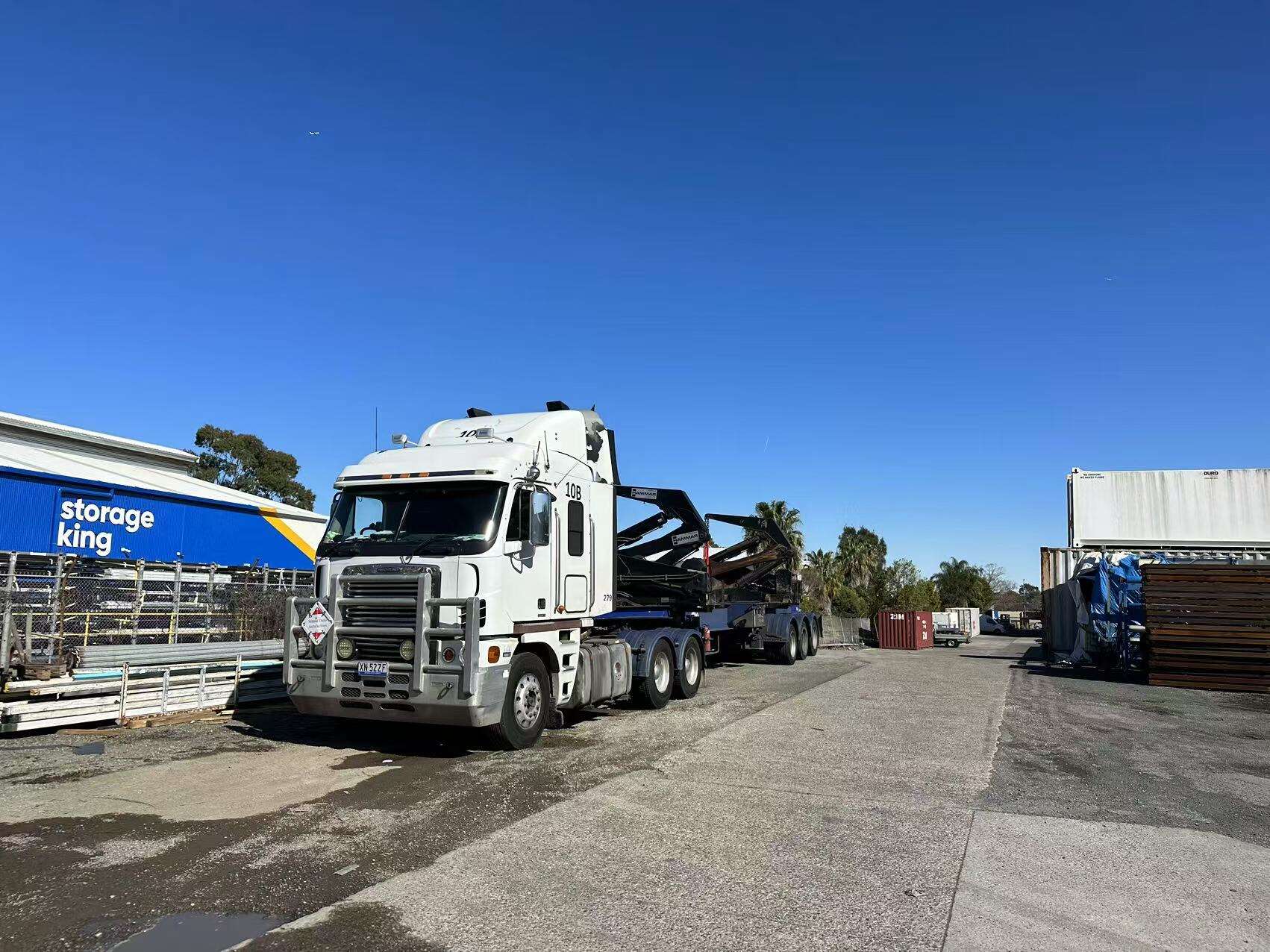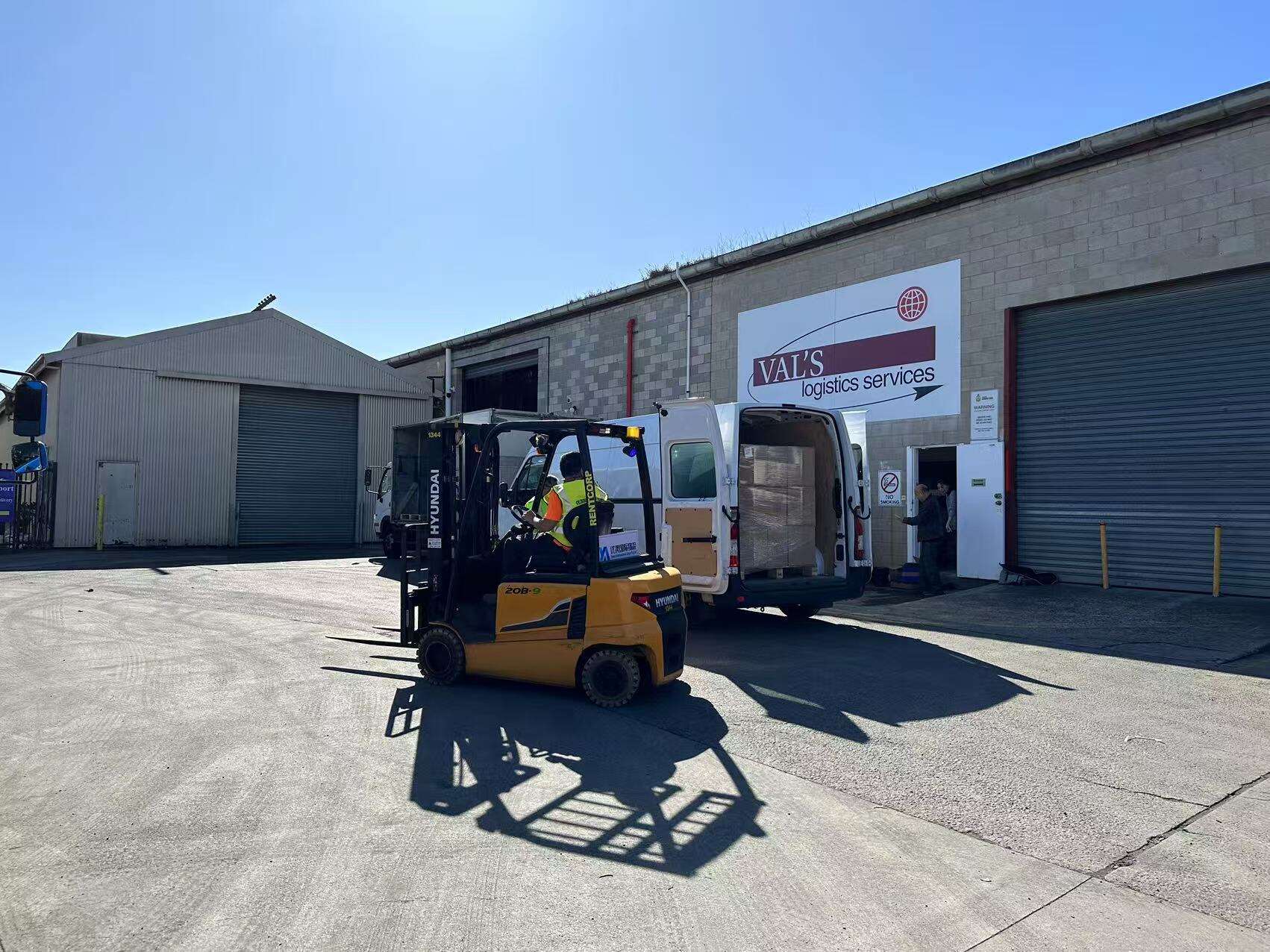The Role of Freight Forwarding in Global Trade
Facilitating Seamless International Commerce
Freight forwarding is really important for global trade because it connects different parts of the supply chain and keeps goods moving between countries without major hiccups. International freight forwarders basically handle all the planning and organizing needed to get shipments where they need to go, no matter if it's by ship, plane, or truck. Their job means juggling logistics across multiple transport options so products arrive on time and in good condition at their final destination. Many businesses rely heavily on these professionals to navigate complex customs regulations and unexpected delays that happen when shipping internationally.
Freight forwarders bring valuable local know-how across different markets, which helps businesses deal with all sorts of international trade rules and requirements. For companies wanting to grow globally, this kind of expert support makes a big difference. They get peace of mind knowing their shipments follow local laws and actually arrive where they need to go instead of getting stuck somewhere along the way. The right freight partner can save headaches and money when dealing with customs paperwork and other border issues that pop up so often in cross-border shipping operations.
Connecting Manufacturers to Global Markets
Freight forwarders serve as the bridge connecting manufacturers with global markets, offering businesses the opportunity to expand beyond their local realms. They provide tailored solutions to meet the specific needs of manufacturers, which ensures compliance with local laws, reduces transit times, and guarantees efficient delivery to ultimate destinations.
Working with a good freight forwarder opens doors to international markets and gives companies a real advantage over competitors. When manufacturers partner with experienced logistics providers, they get better access to global customers and keep clients happy with dependable shipping. This frees up time for what matters most - running the business and making products. The relationship between companies and freight forwarders plays a big role in keeping global trade moving forward. Businesses that build strong partnerships in this area tend to do better when facing changes in the economy and market conditions.
Core Freight Forwarding Services Explained
Air Freight Logistics for Time-Sensitive Shipments
When it comes to getting things where they need to go fast, air freight logistics makes all the difference, especially for stuff like fresh produce, high-tech gadgets, and anything else that can't wait around. Freight forwarders are basically the unsung heroes here, keeping those tight schedules intact while figuring out the best possible routes so nothing gets stuck in limbo. And let's not forget about all the tech stuff happening these days either. Real time tracking systems have become pretty much standard now, letting businesses keep tabs on their cargo from warehouse to destination without lifting a finger themselves. Some companies even get alerts when packages take unexpected detours through customs or whatever.
This not only enhances customer experience but also instills confidence in using air freight logistics for critical deliveries. The growing demand for real-time tracking in freight shipping highlights the importance of such innovations in today's fast-paced market.
Ocean Freight Solutions for Cost-Effective Cargo
Ocean freight solutions provide an economical option for shipping large volumes of goods, making them a preferred choice despite longer delivery times. Forwarders enhance these services by facilitating container consolidation, which significantly reduces shipping costs and maximizes space utilization.
A thorough understanding of global shipping routes and regulations is vital for freight forwarding services to efficiently navigate the complexities of ocean transportation. By leveraging their expertise, freight forwarders ensure businesses can transport their goods cost-effectively, while still complying with international shipping standards.
Customs Clearance and Regulatory Compliance
Freight forwarders provide customs clearance as part of their core services to make sure international shipments meet all legal standards. They deal with all sorts of paperwork, handle tariffs and calculate duties, working hard to cut down on delays when goods enter new countries. Getting this right means businesses avoid costly fines and generally have smoother sailing through the import/export process. For companies dealing with global trade, proper handling of these regulations makes a real difference in both time saved and money spent.
Ensuring smooth customs clearance is integral to maintaining the efficiency and reliability of global trade, reinforcing the role of freight forwarders as indispensable partners in the supply chain. The expertise they provide in navigating complex trade norms is crucial for successful international operations.
How Technology Enhances Freight Forwarding Efficiency
IoT-Driven Real-Time Cargo Tracking
The integration of IoT technologies in freight forwarding services has revolutionized how cargo is tracked in real time. Freight forwarders now use sensors and devices that provide continuous updates on the status and location of shipments. This technological advancement offers transparency, enhancing communication between shippers, carriers, and customers.
Consequently, it allows for timely interventions should any issues arise during transit. Moreover, real-time data collection not only optimizes logistics but also improves operational efficiencies, ultimately benefiting freight shipping.
AI-Powered Predictive Analytics in Freight Shipping
Predictive analytics powered by AI has become essential for today's freight shipping operations. When companies look at past shipping records, these systems spot problems that might come up later, allowing them to predict delays and logistical headaches before they actually mess up shipping schedules. For freight forwarders, this means they can fix things ahead of time instead of scrambling after the fact, which keeps those precious delivery windows intact. Some shippers report cutting down on unexpected holdups by nearly 30% since implementing these smart systems into their daily routines.
This level of accuracy not only boosts reliability but also significantly enhances customer satisfaction by ensuring that shipments arrive as expected. In the competitive realm of freight forwarding, such technologies are vital for elevating service standards and operational excellence.
Overcoming Challenges in Modern Freight Shipping
Navigating Complex International Trade Regulations
Navigating the intricate web of international trade regulations is a significant challenge in freight forwarding. These regulations often vary widely from one country to another, creating a complex landscape that can be daunting for businesses involved in global trade.
Freight forwarders are invaluable allies in this arena, offering expertise to ensure compliance and avoid costly penalties. One of the key roles of freight forwarders is to assist in interpreting these regulations and adapting to ongoing changes, which helps businesses strategically align their operations.
Regular updates on evolving trade policies offer organizations the opportunity to stay agile and responsive to new requirements, ultimately facilitating smoother international transactions.
Addressing Air Cargo Security Screening Demands
Heightened global security concerns have led to tighter regulations for air cargo, necessitating robust screening measures. In the realm of freight forwarding, meeting these stringent requirements is essential to ensure safe and compliant logistics operations. Freight forwarders play a crucial role in facilitating adherence to aviation authorities' security mandates.
By investing in advanced screening technologies, they enhance the safety of air freight operations while maintaining efficiency. These technologies not only help in detecting potential threats but also streamline processes, ensuring that shipments reach their destinations without unnecessary delays.
As air cargo security continues to evolve, staying updated with the latest screening innovations is imperative for anyone involved in freight shipping.
Future Trends Reshaping Freight Forwarding Services
Sustainability Initiatives in Green Logistics
The freight forwarding industry is making significant strides toward green logistics to reduce its environmental impact. This entails optimizing transportation routes to minimize fuel consumption and adopting eco-friendly packaging materials, both of which contribute to lowering emissions.
Businesses focusing on green initiatives do more than just protect the planet they also boost their reputation and keep customers coming back. Take DHL for instance, which recently cut down emissions by optimizing delivery routes. Today's shoppers want to support companies that take environmental responsibility seriously, especially younger demographics looking for ethical options. Sustainability isn't just passing fads anymore it's become essential for logistics firms wanting to stay competitive. Freight forwarders who ignore this shift risk falling behind while those embracing eco-friendly practices find themselves better positioned in the market.
Autonomous Shipping and Smart Port Innovations
The advent of autonomous shipping technologies is poised to dramatically improve the efficiency of freight forwarding services. These technologies, alongside smart port innovations like automated cranes and AI-driven logistics management systems, streamline port operations significantly.
Smart ports boost productivity because they cut down on mistakes made by people and reduce time when operations come to a halt, which saves money in the long run. When companies start using this tech, it's changing things pretty dramatically for freight forwarders, making shipping faster while also getting much more accurate. We're already seeing real shifts happening across the industry as these smart systems become more common. Freight management around the world looks different now compared to just a few years ago, though there are still plenty of challenges ahead before everyone fully embraces this new way of doing business.
FAQs
What is the role of a freight forwarder in global trade?
A freight forwarder acts as a key link in the supply chain, facilitating the smooth movement of goods across international borders through meticulous planning and coordination.
How do freight forwarders help manufacturers expand globally?
Freight forwarders connect manufacturers to global markets by providing tailored solutions that ensure compliance with local laws, reduce transit times, and guarantee efficient delivery.
What technologies are enhancing freight forwarding efficiency?
Technologies such as IoT-driven real-time cargo tracking and AI-powered predictive analytics are enhancing efficiency in freight forwarding by optimizing logistics and improving operational efficiencies.
How do freight forwarders tackle the challenge of international trade regulations?
Freight forwarders offer expertise in navigating complex trade regulations, ensuring compliance and assisting businesses in adapting to regulatory changes.
What are the future trends in freight forwarding?
Future trends include sustainability initiatives in green logistics and the adoption of autonomous shipping and smart port innovations to improve efficiency and reduce operational costs.
Table of Contents
- The Role of Freight Forwarding in Global Trade
- Core Freight Forwarding Services Explained
- How Technology Enhances Freight Forwarding Efficiency
- Overcoming Challenges in Modern Freight Shipping
- Future Trends Reshaping Freight Forwarding Services
-
FAQs
- What is the role of a freight forwarder in global trade?
- How do freight forwarders help manufacturers expand globally?
- What technologies are enhancing freight forwarding efficiency?
- How do freight forwarders tackle the challenge of international trade regulations?
- What are the future trends in freight forwarding?




